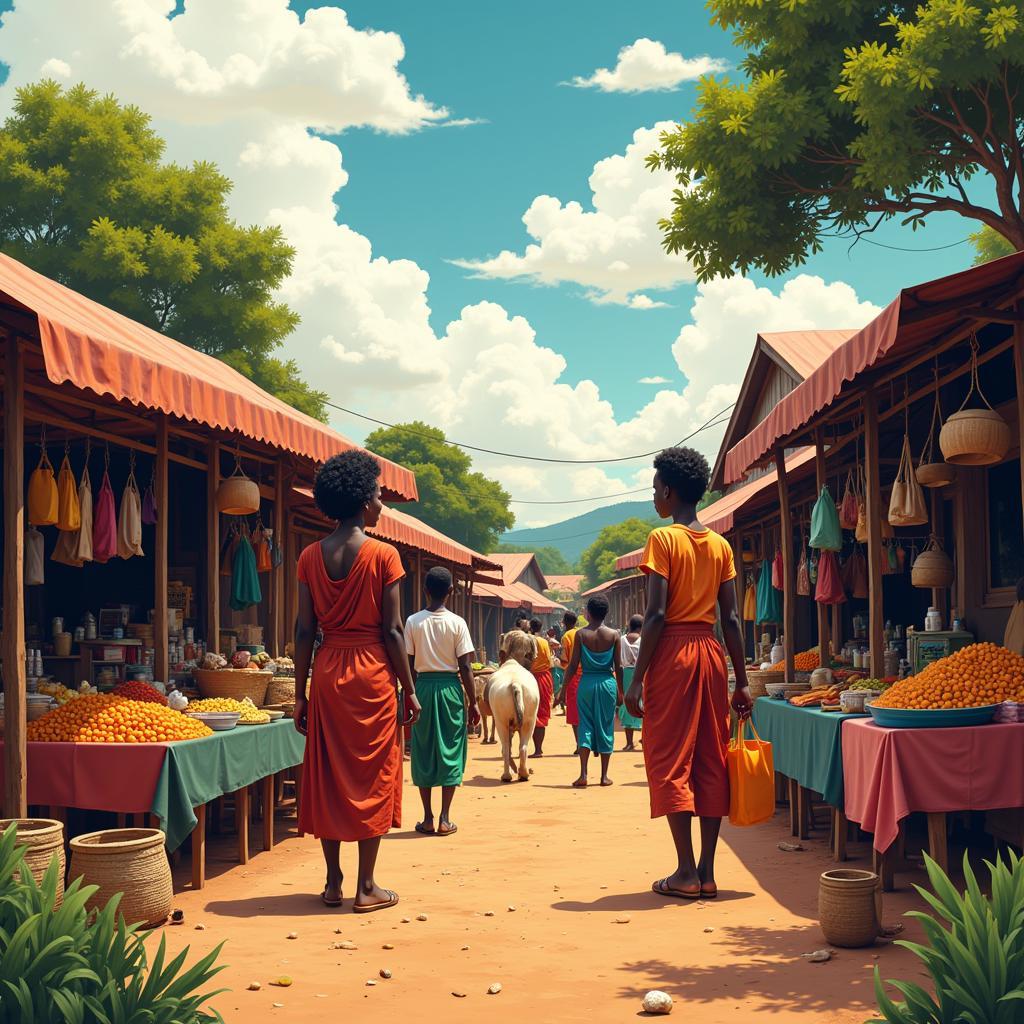The African Continent Break Story: A Journey Through History and Transformation
The African Continent Break Story is a complex and fascinating narrative of geological shifts, evolving societies, and a dynamic present. It’s a story woven through millennia, marked by both immense challenges and incredible triumphs. From the ancient kingdoms that once flourished to the vibrant cultures that thrive today, Africa’s story is one of resilience, innovation, and a continuous journey of transformation.
Understanding the African Continent Break: A Geological Perspective
The literal breaking of the African continent is rooted in plate tectonics. The East African Rift Valley, a dramatic geological feature stretching thousands of kilometers, is a testament to the powerful forces shaping the Earth’s surface. This rift, where the African plate is slowly splitting apart, offers a glimpse into the future: the eventual formation of a new ocean basin. This ongoing geological process has had a profound impact on the landscape, creating unique ecosystems and influencing the distribution of resources across the continent. The rift has also played a role in the evolution of human ancestors, with some of the earliest hominid fossils discovered in the region.
After this introduction to the geological break, we can delve into the more metaphorical breaks – the shifts in political landscapes and societal structures. The African chichlet tells a story of traditions and transformations.
From Ancient Kingdoms to Colonial Rule: A Historical Break
Africa’s history is punctuated by periods of both unity and division. Great empires like Ghana, Mali, and Songhai once controlled vast swathes of West Africa, fostering trade and intellectual exchange. Similarly, kingdoms like the Zulu and Great Zimbabwe thrived in Southern and Eastern Africa, leaving behind impressive architectural and cultural legacies. However, the arrival of European colonialism marked a brutal disruption, redrawing borders, exploiting resources, and suppressing indigenous cultures. This period represents a significant “break” in the continent’s trajectory, leaving lasting impacts on political, economic, and social structures.
Understanding these historical shifts is essential to appreciating the complexities of modern Africa. The legacy of colonialism continues to shape the continent’s development, influencing everything from political systems to economic opportunities.
The Break from Colonialism: A Struggle for Independence
The 20th century witnessed a wave of independence movements across Africa, as nations fought to reclaim their sovereignty. From Algeria to Zimbabwe, the struggle for liberation was often long and arduous, marked by both peaceful resistance and armed conflict. This era represents another critical “break,” a rejection of colonial rule and a reassertion of African self-determination. The emergence of independent nations brought both hope and challenges, as newly formed governments grappled with the task of nation-building and development.
Explore the intricate beauty of African hair threading with yarn, a tradition that reflects the artistry and cultural richness of the continent.
The African Renaissance: A Break with the Past
The concept of an “African Renaissance” encapsulates the continent’s ongoing efforts to break free from the shackles of its past and forge a new future. This vision emphasizes good governance, economic development, and pan-African unity. While challenges remain, there are also reasons for optimism. A growing middle class, increased access to education, and technological advancements are all contributing to a more dynamic and interconnected Africa.
Conclusion: The African Continent Break Story Continues
The African continent break story is not a single event but a continuous process of evolution and transformation. From the geological forces shaping its landscape to the social and political movements shaping its future, Africa’s story is one of resilience, innovation, and unwavering determination. The continent continues to break free from old narratives and embrace new possibilities, forging a path towards a brighter future.
FAQ
- What is the East African Rift Valley? It’s a geological feature where the African plate is splitting apart.
- What were some prominent pre-colonial African kingdoms? Ghana, Mali, Songhai, Zulu, and Great Zimbabwe.
- When did most African countries gain independence? Primarily during the mid-20th century.
- What is the African Renaissance? A vision for Africa’s future emphasizing good governance and development.
- What are some positive developments in modern Africa? A growing middle class, increased access to education, and technological advancements.
- How has colonialism impacted modern Africa? It has significantly affected political and economic structures.
- What is the significance of the African continent’s geological break? It has created unique ecosystems and influenced resource distribution.
More questions about African culture:
- Have you ever wondered about the different African country flags 2019 and their symbolism?
- Are you curious about the experiences of African girls offering personal services in Bangalore?
- Have you looked into the issue of African girl escort Pune locanto?
When you need assistance, please contact us by phone: +255768904061, email: [email protected] or visit us at Mbarali DC Mawindi, Kangaga, Tanzania. We have a 24/7 customer service team.
